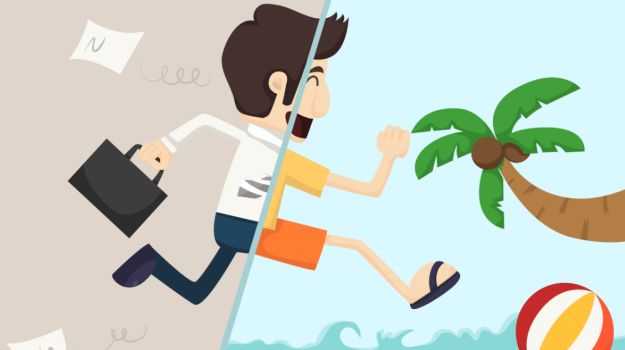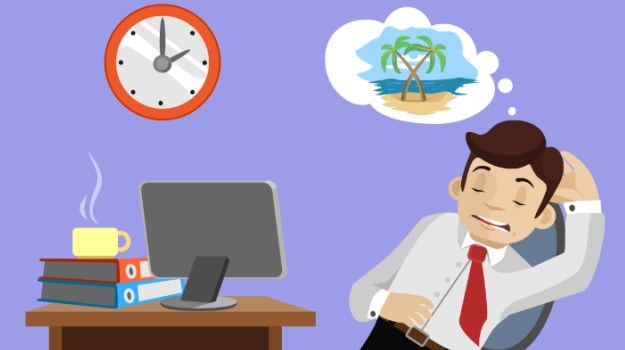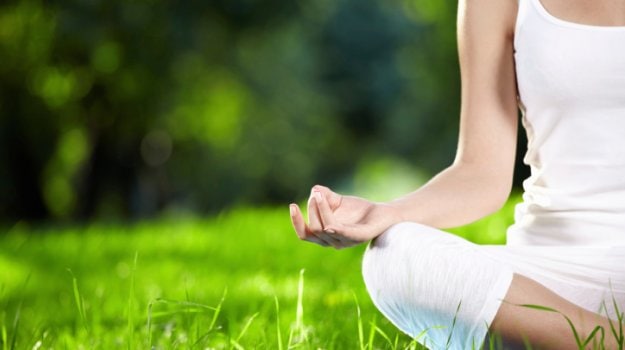 Here are 10 smart tips and tricks to stop anxiety and reduce stress.
Here are 10 smart tips and tricks to stop anxiety and reduce stress.
‘What’ and ‘If’ – two innocuous words on their own, but put them together and it’s like unleashing the power of the atom. “What if I fail my exam? What if my child actually hates me? What if I’m not attractive? What if I don’t ace the interview? What if my boss doesn’t like the presentation? What if I don’t make it for the flight in time?” Just like Gautama Buddha had rightly put: “Nothing can harm you as much as your own thoughts unguarded”.
We know living with anxiety is never easy. But by hyper-focusing on the future and worrying, you’re wasting a lot of valuable time and mental energy trying to solve a problem that in fact isn’t there; a problem that will likely never be there.
Now, there isn’t a sure-shot cure for anxiety yet. But thankfully there are many healthy tools and techniques that will help you cope with anxiety effectively. Scroll down for 10 tips on how to stop anxiety.
1. Control Your Breathing
The first thing to do when you get anxious is to breathe. It helps the body go from the fight-or-flight response of the sympathetic nervous system to the relaxed response of the parasympathetic nervous system. Even if you can’t take a deep breath, just slow down and reduce your breathing. The idea is to take more controlled, shallower, slower breaths. Don’t speed it up or take deeper breaths.
2. Visualise
You have the ability to design your world. “Visualise a perfect scenario of how you want your life to be, rather than stressing over things that are not working in your favour. Imagine every calming detail in a pink bubble, and fill it with joy and love. Believe that your co-creation is coming true, then put a blue ring of protection around the bubble, and release it into the universe”, adds Malini Sawhney.

3. Be Grateful
When you’re anxious, you’re basically thinking about how everything in your world is going downhill. Instead, shift the focus to all the good things in your life and take a moment to appreciate them. Counting your blessings actually raises your happiness quotient and helps put things in perspective.
4. Exercise, Exercise, Exercise!
Your body is filled with adrenaline during periods of anxiety. To controls your symptoms of anxiety, you need to use that adrenaline towards exercise – even if it’s just for a minute. Aerobic activity (such as jogging or even brisk walking) doesn’t just fire up your endorphins and clear your mind, it also reduces the stress hormones that create symptoms of anxiety. Exercising tires your muscles, thereby reducing excess energy and tension, and also helps you get a sound sleep.

5. Affirm
Anxiety tends to produce a lot of negative chatter, so you need to remind yourself that this feeling will pass and try to feel better. Malini Sawhney, a Delhi-based Meditation Expert suggests telling yourself positive coping statements such as: “My anxiety will not control me. I’m okay. I am calm and relaxed. I am in the perfect place. Life is good. Thank You! Thank You! Thank You!”.
6. Listen to Relaxing Music
When you are feeling anxious and overwhelmed by a stressful situation, you may avoid listening to music as you feel it is a waste of time. But according to the University of Nevada, Reno, relaxing classical music has a positive effect on the brain and body, can lower blood pressure and reduce your cortisol levels. The key is to make sure you’re listening to music that represents the way you want to feel. Happy or relaxing music, not just any music.7. Trick Your Brain
Almost all anxiety attacks are fueled by thinking anxiously. Solution? Trick your brain and distract yourself in order to prevent an anxious trail of thought. When you prevent anxious thinking, you also prevent voluntary anxiety attacks and shut off stress responses. Distract yourself by counting, playing a game, calling a loved one, or just laughing out loud. No, seriously – a good laugh goes a long way. It tricks your nervous system into making you happy by releasing endorphins that reduce levels of stress-causing hormones like cortisol and adrenaline. Ask yourself: “What would I be doing if I wasn’t anxious?” You can also use more sensory experiences like washing your face with cold water, or eating something with strong flavours to divert your attention. To put it simply: The better you are at distracting yourself, the faster your anxiety attack will end.

8. Challenge Yourself
When you’re stressed or anxious, you tend to worry unnecessarily and have a negative outlook to life. So ask yourself questions like: “Is this worry realistic?”, “If the worst happens, will it really turn my world upside down?”, “Will I be able to handle it?”, “Is this really the case, or does it just seem that way?”, “Can I do something to prepare for the worst case scenario?”, etc. Remember, if a problem is that vague, it can’t cause you any immediate harm. So it’s alright to leave if for a while and focus on something else; something that you can handle.
9. Meditate, Don’t Medicate
Mindful meditation teaches you to identify your negative thoughts as useless, as just a thought and not a part of who you really are. As the saying goes, “Where there is peace and meditation, there is neither anxiety nor doubt”. Meditation is the fuel that allegedly unlocks productivity and creative bursts, and reduces levels of anxiety and stress. Tip: “You need to meditate regularly, to make it easier to access when you’re anxious”, suggests Delhi-based Meditation Expert Malini Sawhney.

10. Accept Anxiety
Accepting anxiety doesn’t mean you need to like it, but you would benefit by embracing your reality. So learn to pay attention to what’s happening right now, instead of obsessing over a slew of what-ifs. Even if something serious is happening, focusing on the present will help you manage the situation better.
Note: No matter how powerful the anxiety attack, it will come to an end sooner or later. As my grandmother puts it, “Stay cool, calm and confident” (her version of C-cubed, and it works every time)!
[“source-ndtv”]










